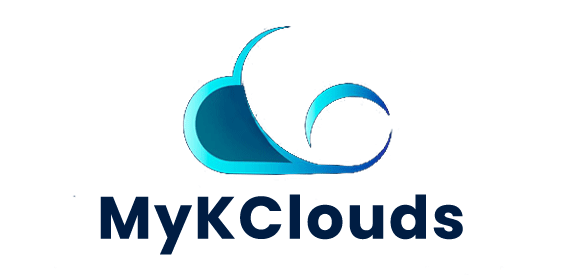
In today’s fast-evolving digital landscape, businesses are increasingly recognizing the transformative potential of cloud migration. Moving operations to the cloud isn’t merely a trend—it’s a strategic decision that can significantly enhance efficiency, reduce costs, and drive innovation. Here’s why migrating to the cloud could be one of the best decisions for your business.
Cloud Migration Offers Significant Cost Savings and Operational Efficiency
One of the most compelling advantages of cloud migration is its potential to reduce costs. According to a report by Deloitte, businesses can save between 15% and 40% on IT expenditures by migrating to the cloud. Traditional on-premises IT infrastructure requires significant upfront investments in hardware, software, and ongoing maintenance. Additionally, there are operational costs to consider, such as electricity, cooling, and physical space.
Cloud computing, in contrast, operates on a pay-as-you-go model, where businesses only pay for the resources they actually use. This model eliminates the need for hefty capital expenditures and allows companies to shift to an operational expense structure. Moreover, cloud providers manage maintenance, updates, and security, further reducing the need for costly in-house IT support.
Scalability and Flexibility in the Cloud Allow Businesses to Adapt Quickly
Cloud migration offers unparalleled scalability and flexibility, crucial for businesses in an increasingly dynamic market. In a traditional setup, scaling IT resources often involves purchasing and installing new hardware—a process that can be both time-consuming and expensive. In contrast, cloud computing allows businesses to instantly scale resources up or down based on demand.
This flexibility is especially valuable during peak periods such as holiday sales or product launches, where businesses can quickly increase computing power to handle the surge in activity. Conversely, during off-peak times, resources can be scaled back to minimize costs. This dynamic allocation of resources helps businesses adapt swiftly to changing market conditions without the constraints of physical infrastructure.
Cloud-Based Solutions Enhance Collaboration and Boost Productivity
The cloud is revolutionizing workplace collaboration and productivity, particularly in today’s era of remote and hybrid work. According to a survey by Gartner, 88% of organizations worldwide encouraged or required employees to work from home during the COVID-19 pandemic, highlighting the importance of cloud-based solutions.
Cloud platforms enable employees to access files, applications, and tools from anywhere with an internet connection, fostering real-time collaboration and information sharing. This not only boosts productivity but also creates a more agile and responsive work culture. Teams can work on documents simultaneously, share updates instantly, and maintain seamless communication, all of which are vital for maintaining operational efficiency in a dispersed workforce.
Ensuring Business Continuity and Disaster Recovery Through Cloud Solutions
Ensuring business continuity in the face of unexpected disruptions is a top priority for any business. Cloud computing provides robust disaster recovery solutions that protect businesses from data loss due to system failures, cyber-attacks, or natural disasters.
A study by IDC found that businesses using cloud services experience 72% less downtime than those relying on traditional on-premises infrastructure. Cloud providers typically offer automated backup and recovery services, ensuring that data is regularly saved and can be restored quickly in the event of an outage. This minimizes downtime and ensures that business operations can continue with minimal disruption.
Security and Compliance in the Cloud: Protecting Your Data and Meeting Regulations
Security concerns are often cited as a barrier to cloud adoption, but leading cloud providers invest heavily in state-of-the-art security measures. According to McAfee’s Cloud Adoption and Risk Report, 83% of organizations store sensitive data in the cloud, relying on providers to secure their information.
Cloud providers implement advanced security protocols, including encryption, identity and access management, and regular security audits. Additionally, they are well-versed in industry-specific regulations and compliance standards, making it easier for businesses to meet regulatory requirements. Migrating to the cloud allows companies to benefit from the security expertise of their provider, often at a lower cost than managing these efforts internally.
Cloud Migration Unlocks Innovation and Provides a Competitive Advantage
Cloud migration is a gateway to innovation. By moving to the cloud, businesses can access a suite of cutting-edge technologies, including artificial intelligence (AI), machine learning (ML), big data analytics, and the Internet of Things (IoT). These technologies can drive innovation by enabling businesses to analyze data more effectively, automate processes, and deliver more personalized customer experiences.
A report by Accenture highlights that 94% of businesses see cloud as a key enabler of digital transformation. By leveraging cloud-based tools, businesses can stay ahead of the curve, differentiate themselves from competitors, and better meet the evolving needs of their customers.
Cloud Migration Contributes to Environmental Sustainability and Corporate Responsibility
Migrating to the cloud also contributes to environmental sustainability. Cloud providers typically operate large, energy-efficient data centers that are optimized for performance and resource utilization. Many cloud providers are committed to using renewable energy and implementing eco-friendly practices to reduce their carbon footprint.
For example, Google has been carbon-neutral since 2007 and aims to run on carbon-free energy by 2030. By moving to the cloud, businesses can reduce their own energy consumption and environmental impact, aligning with the growing consumer demand for sustainable business practices.
MyKcloud: Your Partner in Seamless Cloud Migration
At MyKcloud, we understand that cloud migration is more than just a technological shift—it’s a critical step toward future-proofing your business. Based in Manitoba, MyKcloud is a Cloud Consulting company dedicated to empowering businesses with cutting-edge solutions that drive innovation and transformation in the modern digital landscape.
We provide tailored solutions that help organizations optimize their operations, enhance productivity, and achieve their strategic goals. Our comprehensive suite of services includes AWS Migration, Azure Migration, DevOps and SRE, Application Modernization, and Cloud Management. We work closely with our clients to understand their unique needs and challenges, delivering customized solutions that drive efficiency, agility, and growth.
At MyKcloud, we believe in the power of technology to create positive change. Our team of experts stays at the forefront of technological advancements, ensuring that your business has access to the most innovative and effective tools available. Whether you’re looking to streamline operations, boost productivity, or drive innovation, MyKcloud can turn complex problems into seamless solutions, enabling your business to thrive in an ever-evolving digital world.
Conclusion: Cloud Migration Is a Strategic Move for Future-Proofing Your Business
Cloud migration is more than just a technology upgrade—it’s a strategic move that can transform your business. From cost savings and scalability to enhanced collaboration and innovation, the benefits of cloud computing are clear. By partnering with MyKcloud for your cloud migration journey, your business can not only stay competitive in today’s digital economy but also position itself for future growth and success.
The time to consider cloud migration is now. Let MyKcloud guide you through this transition, ensuring that your business harnesses the full potential of the cloud while navigating the complexities with ease. Together, we can ensure your business thrives in the digital age.

